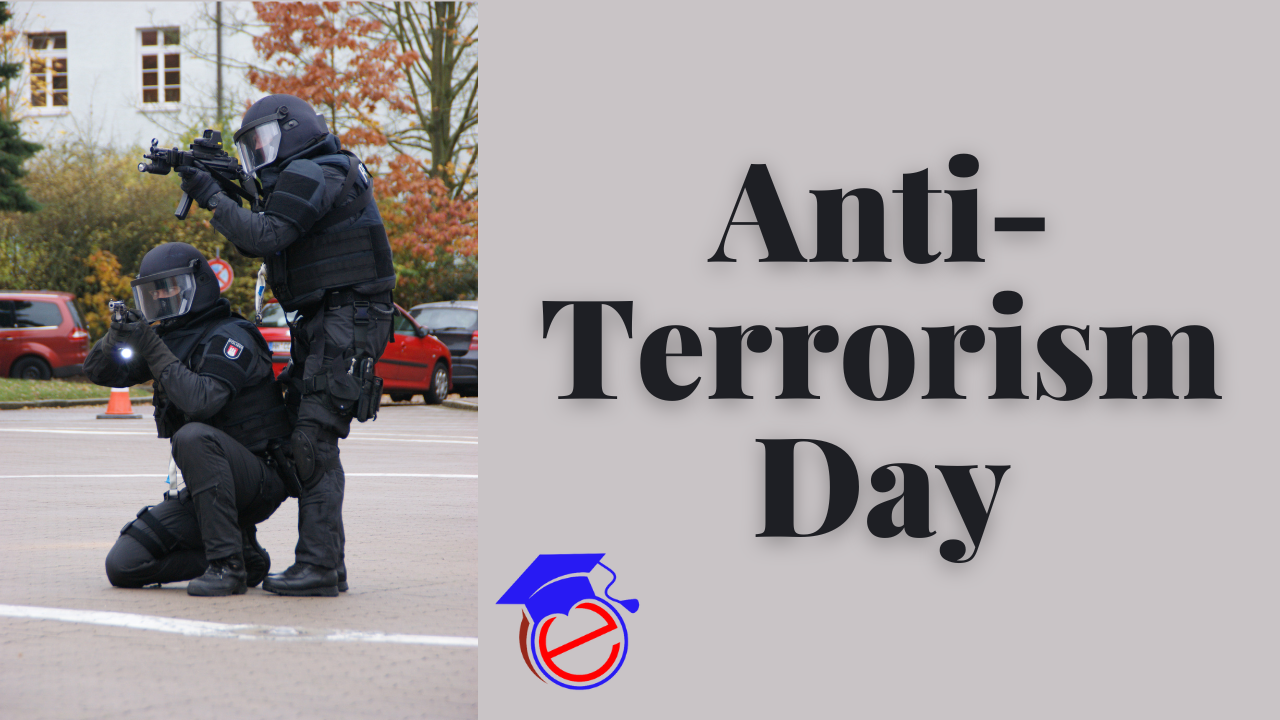
Every year on May 21st, India observes Anti-Terrorism Day to increase public awareness of the risks associated with terrorism and to foster peace and harmony in the nation. Rajiv Gandhi, a former Indian prime minister who was killed by terrorists on May 21, 1991, is remembered on this day.
Anti-Terrorism Day is observed with the primary goal of increasing public awareness of the risks posed by terrorism and motivating people to take action to combat it. In recent years, terrorism has expanded into a global issue, and India is not exempt. Consequently, it is crucial to spread a culture of nonviolence and educate people about the importance of peace and harmony.
Background of Anti-Terrorism Day
On May 21, 1992, the inaugural Anti-Terrorism Day was commemorated in India to remember the passing of former Prime Minister Rajiv Gandhi. While running for office in the 1991 Indian general elections, he was killed by a suicide bomber from the Liberation Tigers of Tamil Eelam (LTTE) in Sriperumbudur, Tamil Nadu.
Actions to stop terrorism
There is no one way to deal with the complex problem of terrorism. To combat terrorism in India, the authorities and security organizations are pursuing a number of actions. Some of these actions consist of:
- In order to better coordinate efforts among various agencies to combat terrorism, the federal government has taken steps to enhance intelligence agencies.
- Increasing border security: With more staff and cutting-edge technology, the government has been attempting to increase border security.
- Improving public place security: The government has been making efforts to improve public place security at sites like airports, train stations, and other congested areas.
- Increasing cyber security: Since we utilize technology more frequently in our daily lives, cyber security has become a major issue. To combat cyberterrorism, the government has been implementing measures to strengthen cyber security.
- Education is crucial in the fight against terrorism because it informs people about the risks posed by terrorism and encourages a culture of nonviolence.
Citizens’ part in preventing terrorism
While the authorities and law enforcement services are working to combat terrorism, everyday people also play a significant part in the fight. The following are just a few ways that people can support the fight against terrorism:
- Reporting suspicious activity: People should exercise caution and alert the authorities to any suspicious activity.
- fostering racial peace: Fighting terrorism requires racial concord. People should encourage intergroup harmony and oppose any forms of violence or hatred.
- People should be made aware of the risks posed by terrorism, and a culture of non-violence should be encouraged.
- Participation in security drills: To be ready for any emergency events, citizens should take part in any security drills that the government conducts.
Conclusion
As terrorism poses a threat to the entire world, it is crucial to combat it in multiple ways. An important step in educating people about the risks of terrorism and fostering a culture of peace is observing Anti-Terrorism Day. While the government and security services are working to combat terrorism, everyday people also play a significant part in the fight. As a result, cooperation is crucial if we want to guarantee a secure and peaceful future for our children and grandchildren.
If you have any suggestions regarding this article then you can leave your suggestion in the comment box.
